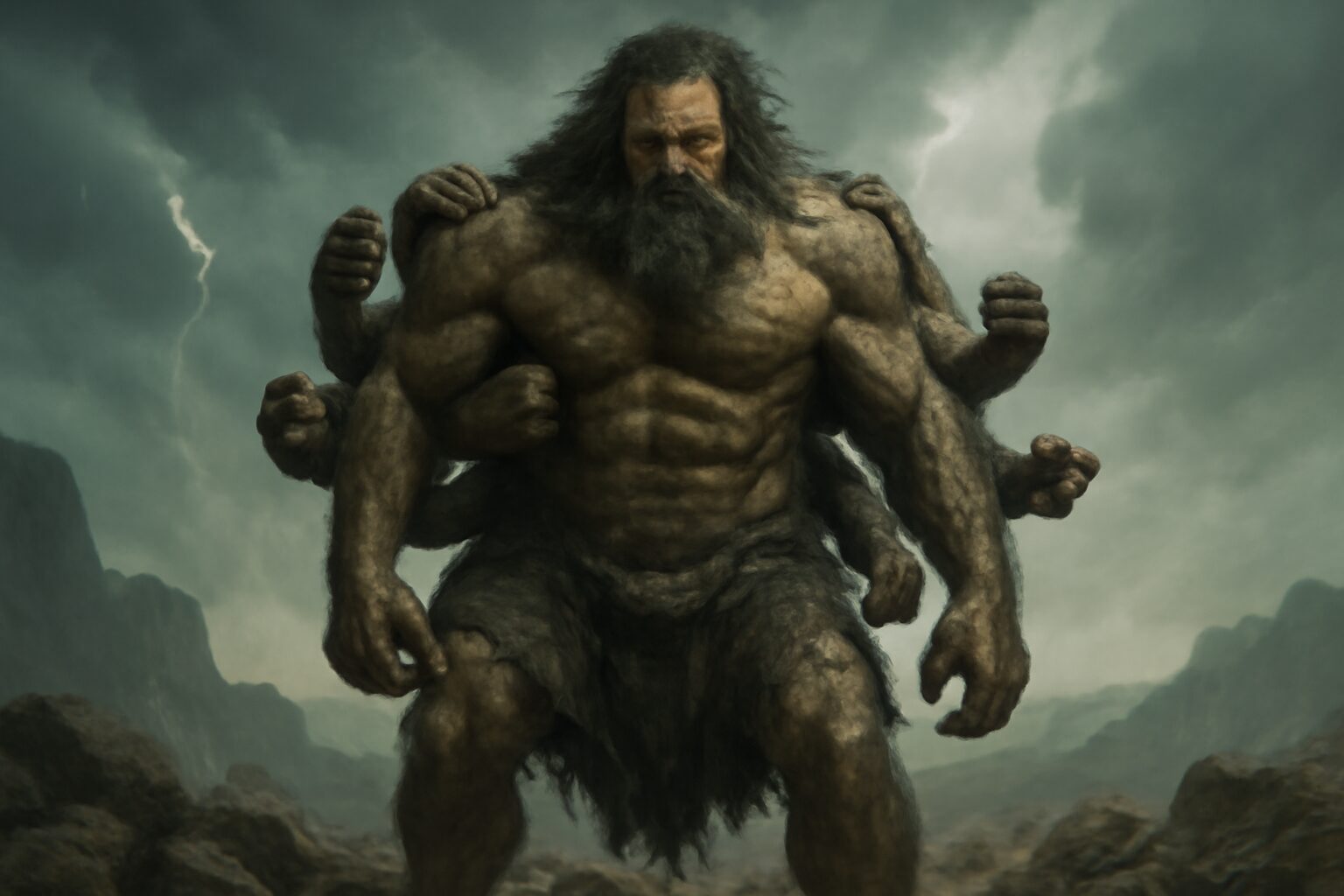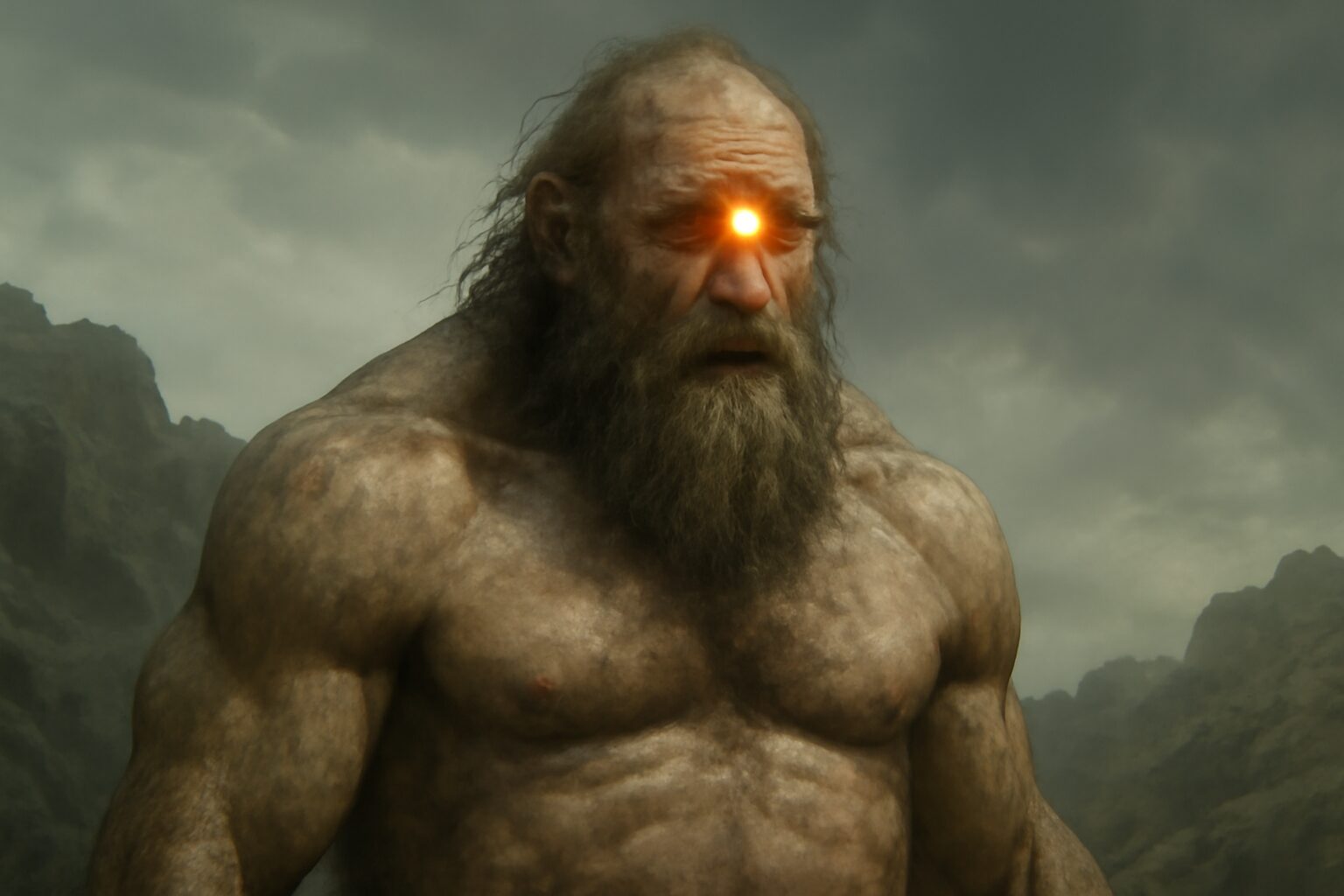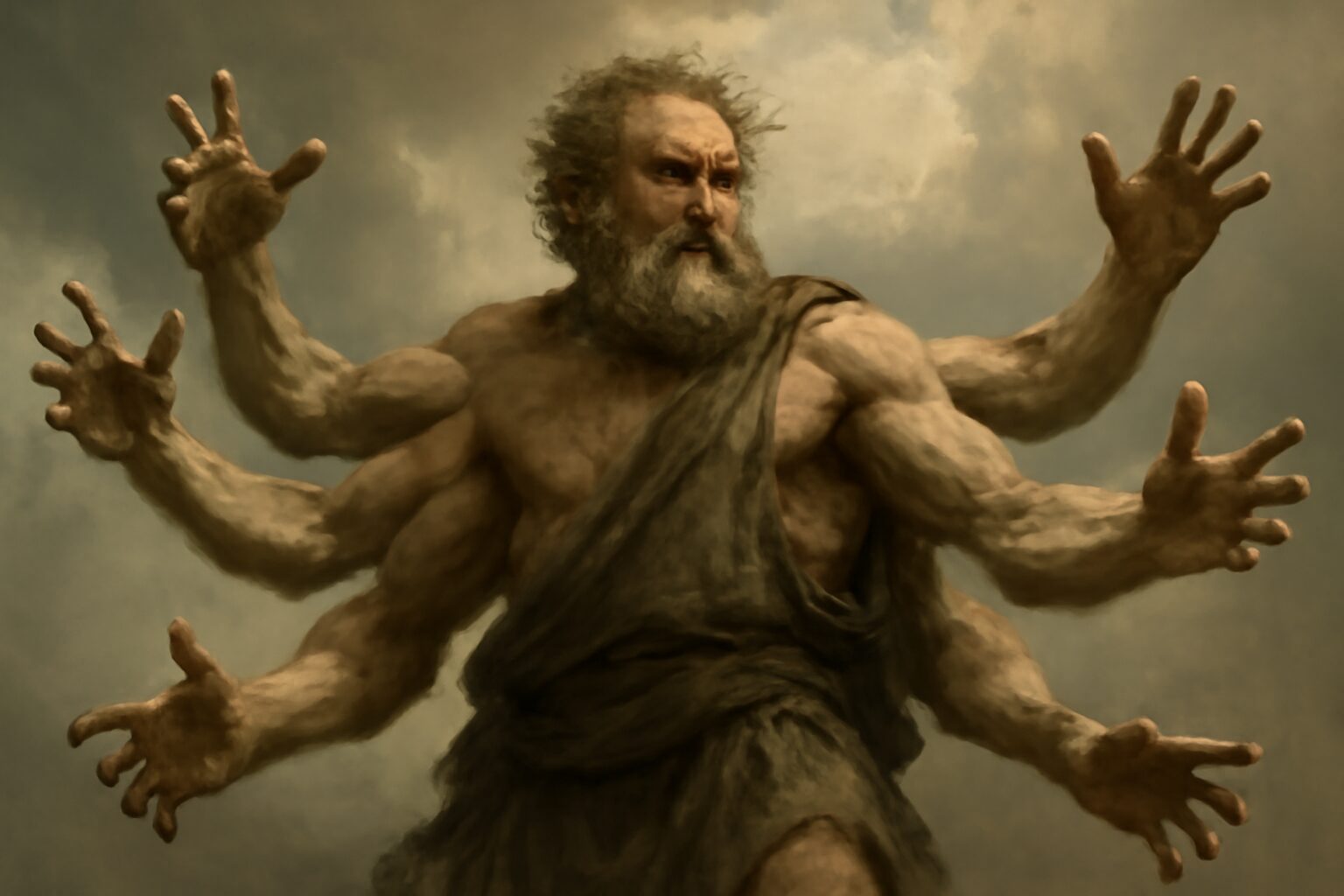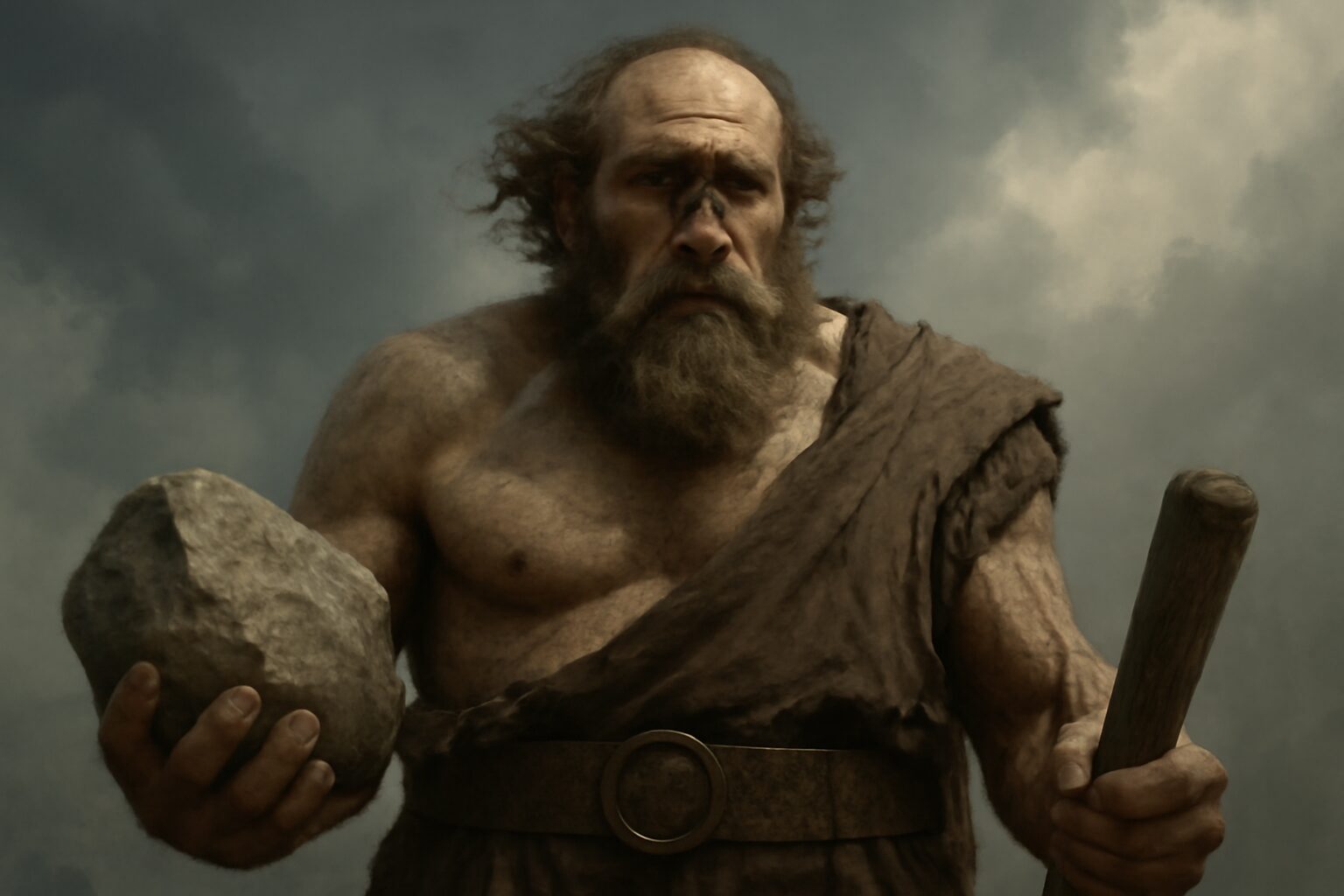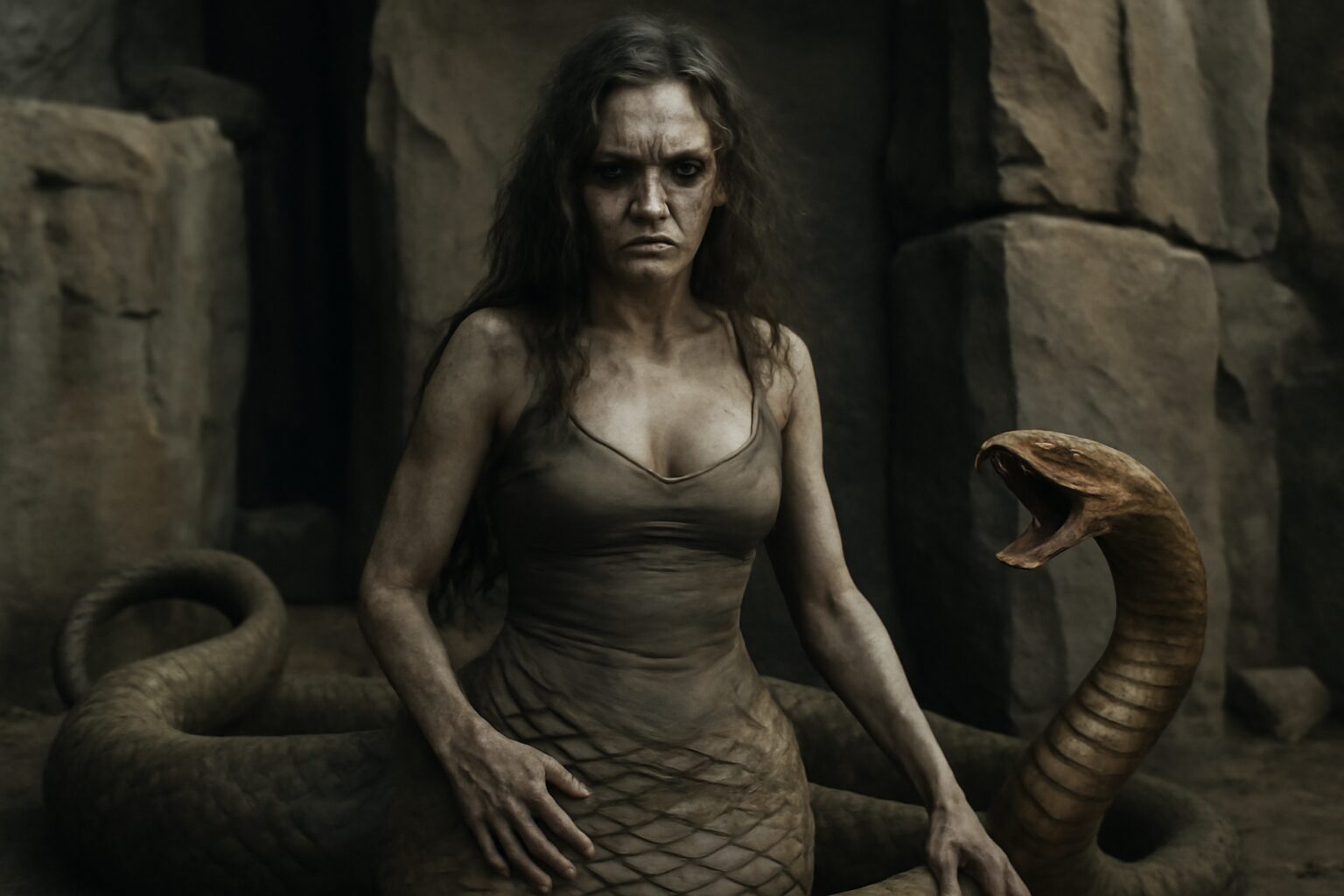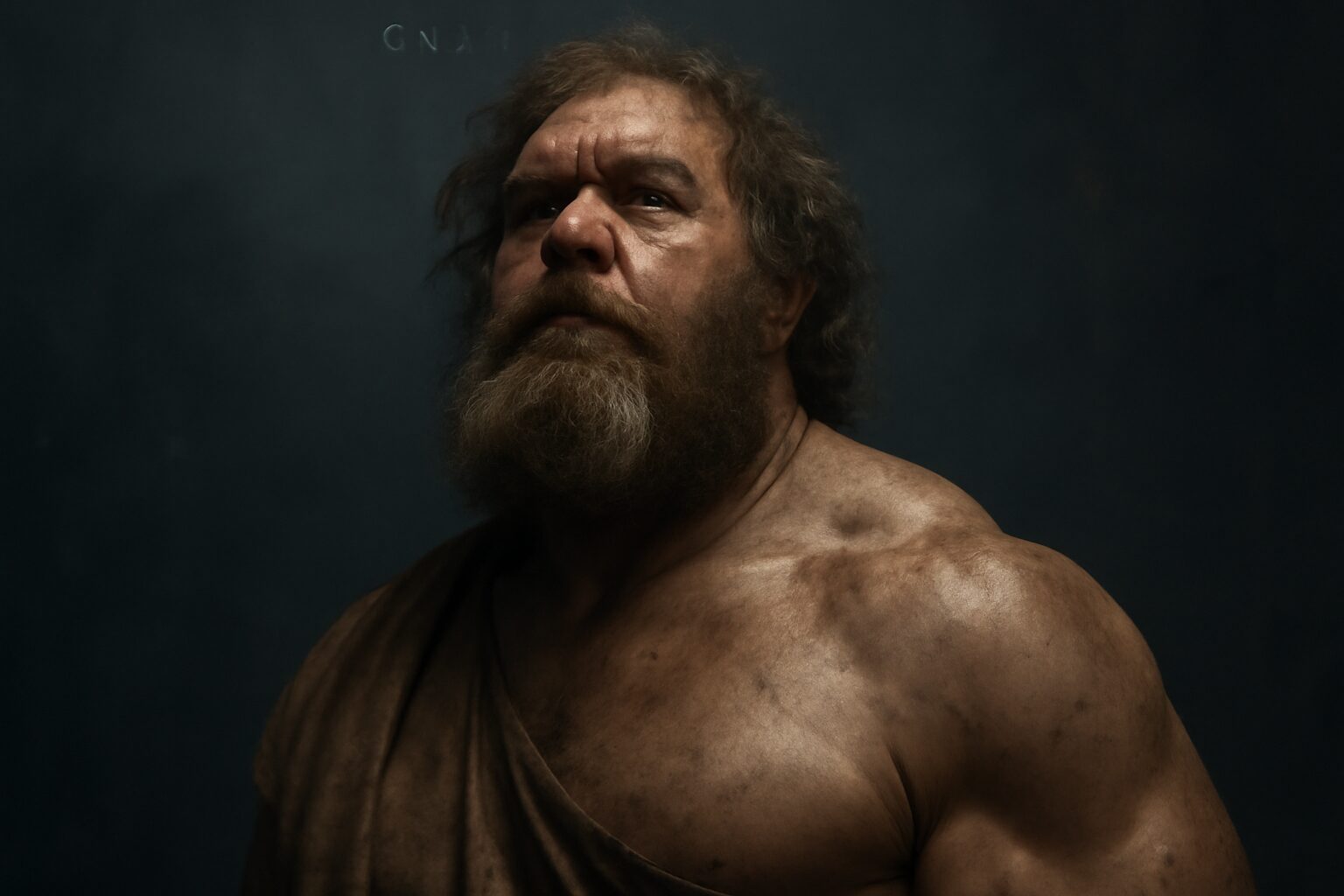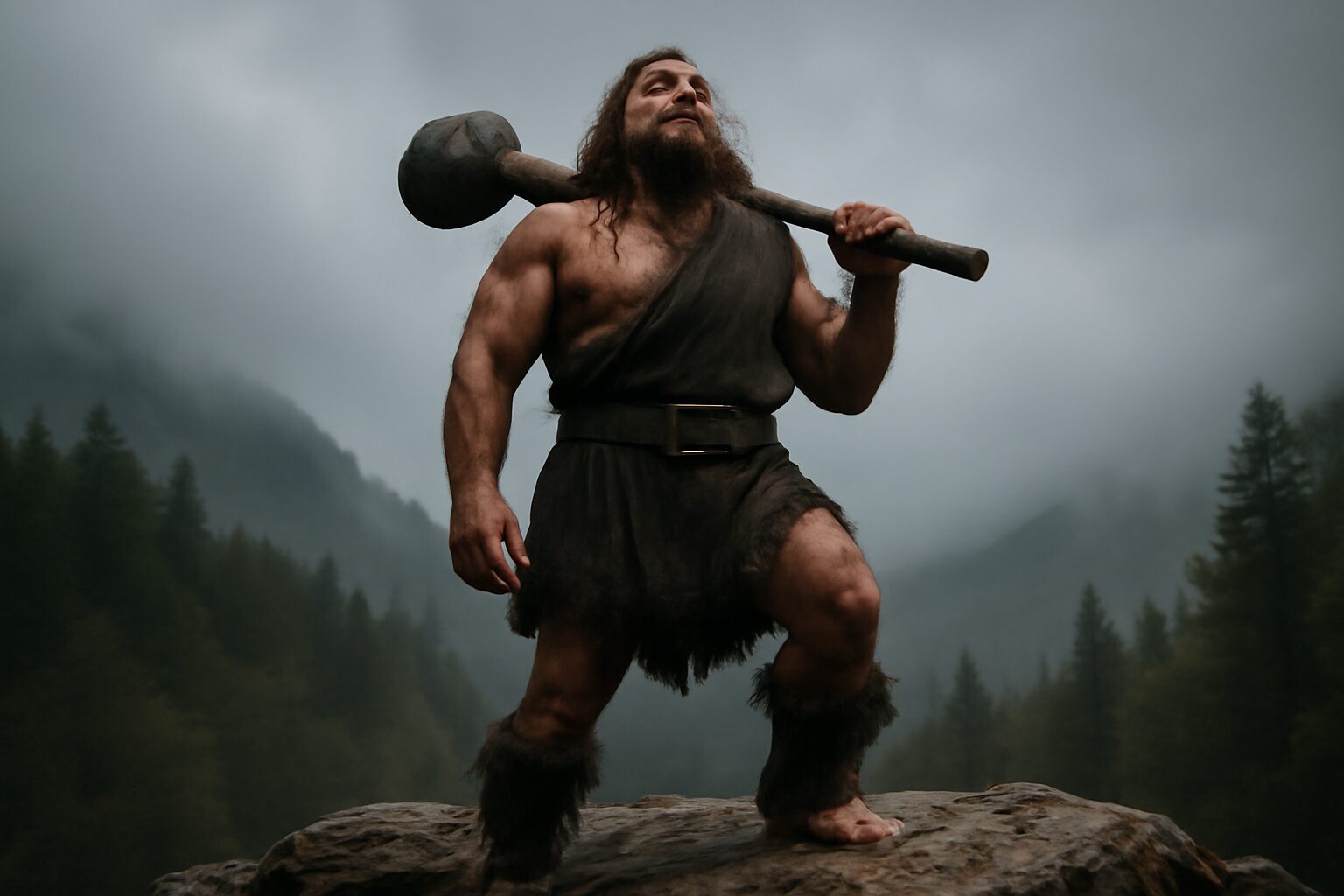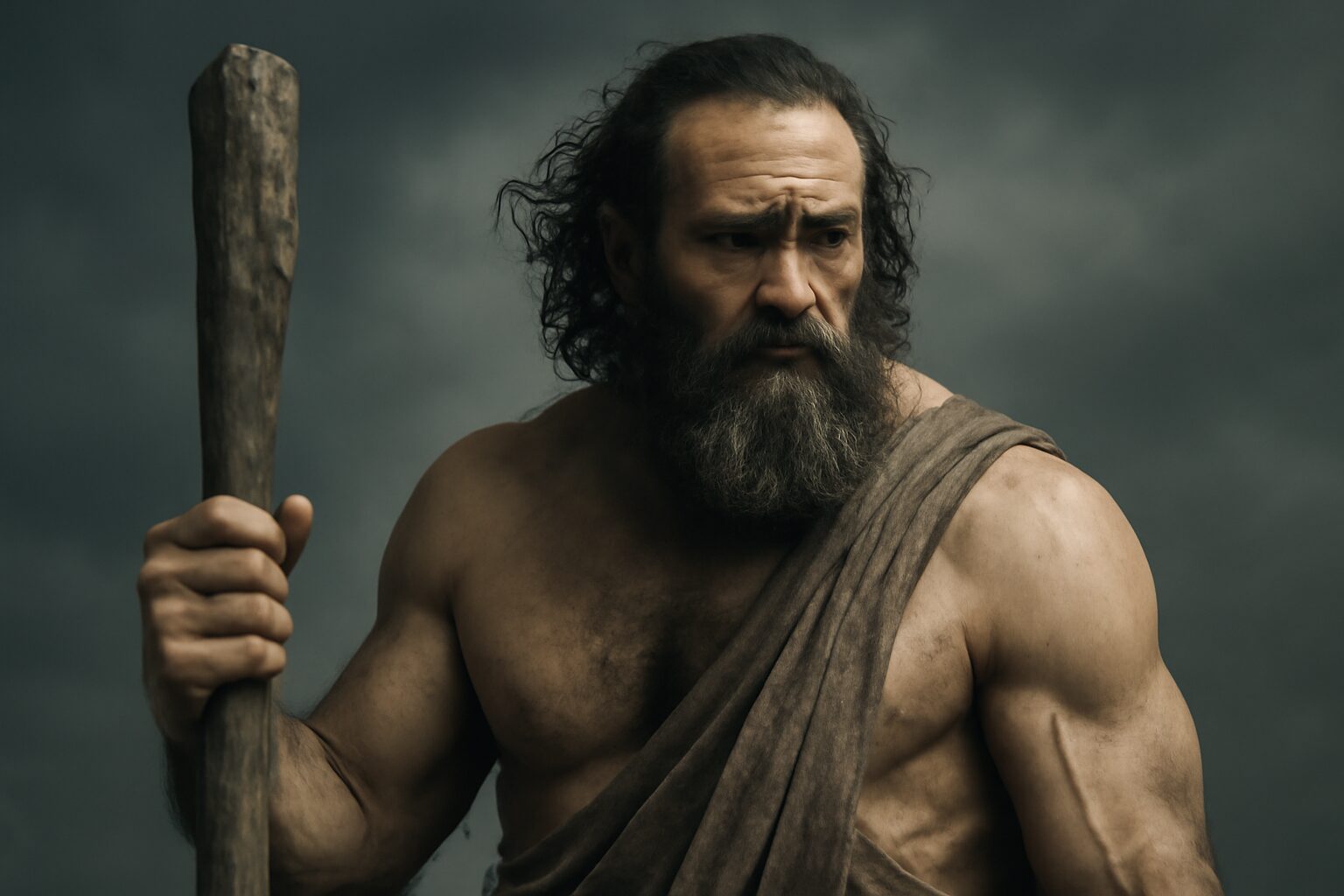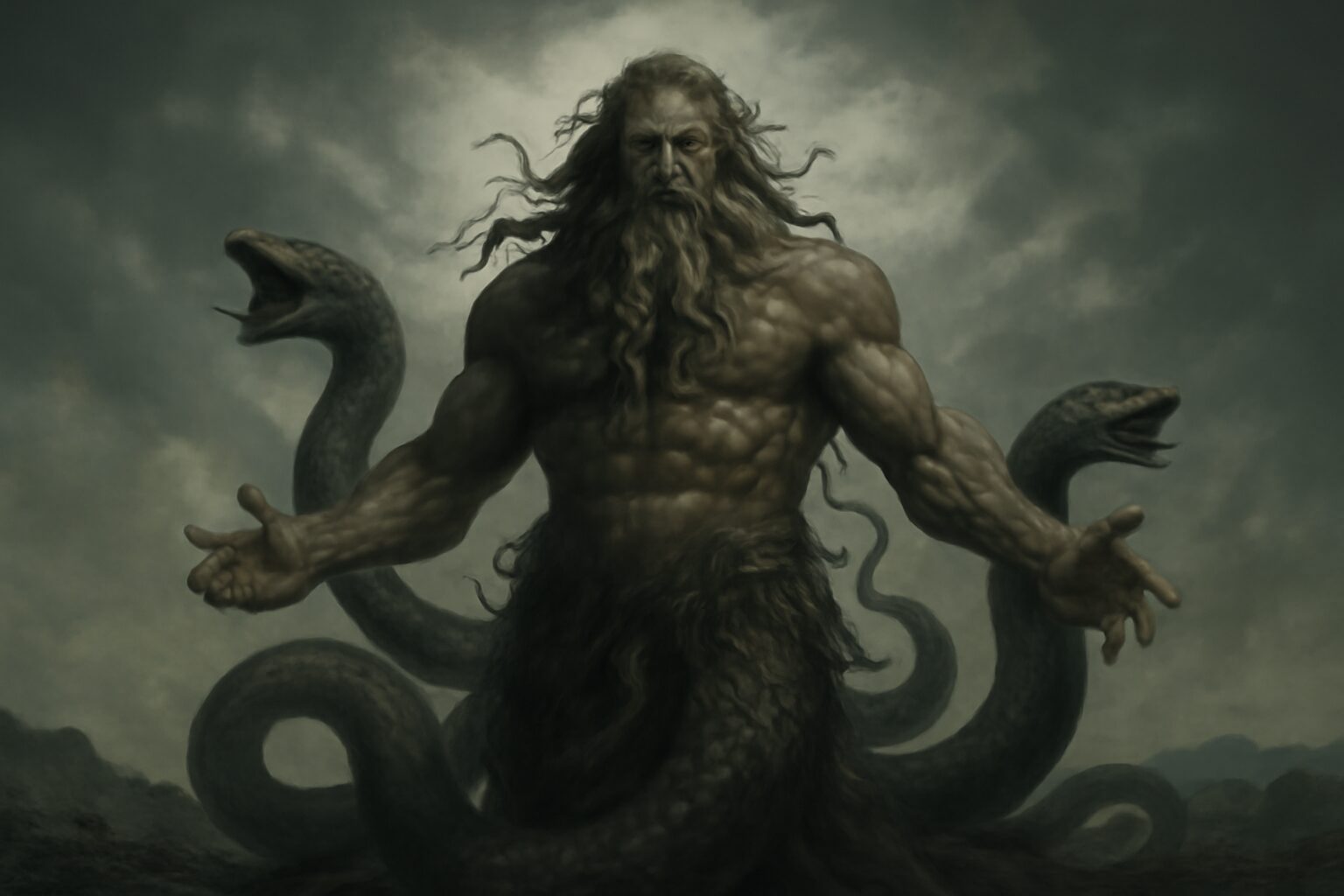Cottus: The Hundred-Handed Giant of Greek Mythology
In the vast pantheon of Greek mythology, Cottus stands out as one of the most formidable and awe-inspiring figures. He was one of the three Hecatoncheires—giants with a hundred hands and fifty heads—born to the primordial deities Uranus (Sky) and Gaia (Earth). Alongside his brothers Briareus and Gyges, Cottus played a pivotal role in the cosmic battles that shaped the Greek mythological universe.
The Titanomachy and Cottus' Role
Cottus and his brothers were initially imprisoned by their father, Uranus, who feared their immense power. Later, the Titans, led by Cronus, overthrew Uranus but kept the Hecatoncheires locked in Tartarus, the deepest abyss of the underworld. When Zeus waged war against the Titans in the Titanomachy, he freed Cottus and his brothers, recognizing their strength as a decisive advantage.
With their hundred hands, the Hecatoncheires hurled massive boulders at the Titans, overwhelming them with sheer force. Their intervention secured victory for the Olympians, establishing Zeus as the ruler of the cosmos. As a reward, Cottus and his brothers were appointed guardians of Tartarus, ensuring the Titans remained imprisoned for eternity.
Powers and Significance
Cottus embodied raw, untamed power. His hundred hands allowed him to wield countless weapons simultaneously, making him nearly invincible in battle. Unlike the more refined Olympian gods, Cottus represented the chaotic, primal forces of nature—earthquakes, storms, and the unfathomable depths of the sea.
Despite his fearsome appearance, Cottus was not inherently malevolent. He was a force of order when aligned with Zeus, using his strength to maintain cosmic balance. His role as a jailer of the Titans underscored his importance in preserving the Olympian reign.
Relationships and Legacy
Cottus' lineage tied him to the earliest beings in Greek mythology. As a child of Gaia and Uranus, he was brother to the Titans, Cyclopes, and other primordial entities. Though rarely featured in myths beyond the Titanomachy, his presence loomed large as a symbol of overwhelming power.
In later traditions, Cottus and his brothers were sometimes conflated with other giants or sea deities, reflecting their connection to natural forces. Their legacy endured as reminders of the brutal, chaotic origins of the world, tamed only by the will of the Olympians.
Today, Cottus remains a fascinating figure—a bridge between the ancient, untamed world and the structured order of Greek mythology.
Alternative Names for Cottus
God Name: Kottos (Greek)
An alternative spelling of Cottus, found in some ancient Greek texts, reflecting different transliterations or regional dialects.
God Name: Cottus (Roman)
The Romans adopted the name directly from Greek mythology without significant alteration, as Cottus was one of the Hecatoncheires, primordial giants.
God Name: Hecatoncheires (Greek)
While not a direct alternative name, Cottus is often referred to as one of the Hecatoncheires (meaning 'Hundred-Handed Ones'), a group of three giants including Briareus and Gyges.
God Name: Briareos (Greek)
In some interpretations, Briareos (or Briareus) is conflated or closely associated with Cottus, as both are Hecatoncheires. This name is more commonly used in later mythological traditions.
Tales about Cottus
The Alliance with Briareus
During the Cronus' reign, the Cottus and his brothers, the Hecatoncheires, were imprisoned in the depths of Tartarus due to their immense power and fearsome appearance. When Zeus rose to challenge the Titans, he sought powerful allies. He freed Cottus and his kin, promising them a place of honor if they aided in the war. Cottus, with his hundred arms, became a pivotal force, hurling massive boulders and creating chaos among the Titan ranks. His alliance with Briareus (Aigaion) showcased their unmatched strength, turning the tide in favor of the Olympians and securing their victory.
The Aftermath and Guarding Duties
After the Titanomachy, Zeus honored his promise but also feared the Hecatoncheires' power. He assigned Cottus and his brothers to guard the Titans in Tartarus, a task they performed with relentless vigilance. Cottus, in particular, was known for his unwavering loyalty and formidable presence, ensuring that no Titan would ever escape their imprisonment. This role highlighted not only his strength but also his strategic importance in maintaining cosmic order under Zeus's rule.
The Encounter with Poseidon
In another tale, Poseidon, god of the sea, once sought to expand his domain into the deepest trenches of the ocean, where ancient powers dwelled. He encountered Cottus, who resided in these abyssal regions as a primordial guardian of the deep. A confrontation ensued, with Poseidon summoning colossal waves and storms, while Cottus used his hundred arms to stabilize the seafloor and counteract the god's fury.
A Pact of Respect
Recognizing each other's might, Poseidon and Cottus eventually forged a pact. Poseidon acknowledged Cottus's sovereignty over the deepest ocean trenches, and in return, Cottus agreed to aid Poseidon during times of great oceanic upheaval, such as when battling threats like the sea monster Scylla or calming the wrath of Thalassa. This alliance underscored the balance of power between the old primordial beings and the newer Olympian gods, with Cottus serving as a crucial ally in maintaining the sea's stability.
Frequently Asked Questions
Who are the Cottus in Greek mythology?
Cottus is one of the three Hecatoncheires, hundred-handed giants in Greek mythology. Along with his brothers Briareus and Gyges, Cottus was a child of Uranus (Sky) and Gaia (Earth). They were known for their immense strength and were allies of Zeus in the Titanomachy, the war against the Titans.
What role did the Gigantes (Giants) play in Greek myths?
The Gigantes, or Giants, were a race of enormous and powerful beings born from Gaia (Earth) to oppose the Olympian gods. They fought against the gods in the Gigantomachy, a great battle where the Olympians, often with the help of mortal heroes like Heracles, defeated them to maintain cosmic order.
Why are monstrous figures like the Hecatoncheires and Giants important in Greek mythology?
Monstrous figures like the Hecatoncheires and Giants symbolize chaos and the primal forces of nature. Their battles with the Olympian gods represent the struggle between order and chaos, showing how the gods established and maintained control over the universe. These myths also highlight themes of power, rebellion, and divine justice.
What can we learn from the myths about Cottus and the Giants?
These myths teach us about the ancient Greeks' understanding of the world, where order triumphs over chaos. They also reflect cultural values like the importance of strength, strategy, and divine favor. The stories often serve as allegories for natural phenomena or human experiences, such as overcoming seemingly insurmountable challenges.
How do the myths of Cottus and the Giants apply today?
The themes in these mythsu2014such as the struggle between order and chaos, the importance of teamwork, and the consequences of rebellionu2014remain relevant. They inspire modern storytelling in books, movies, and games, and offer timeless lessons about resilience, leadership, and the balance of power.

